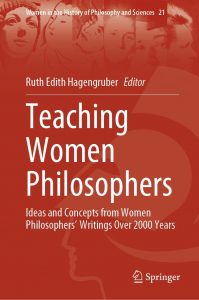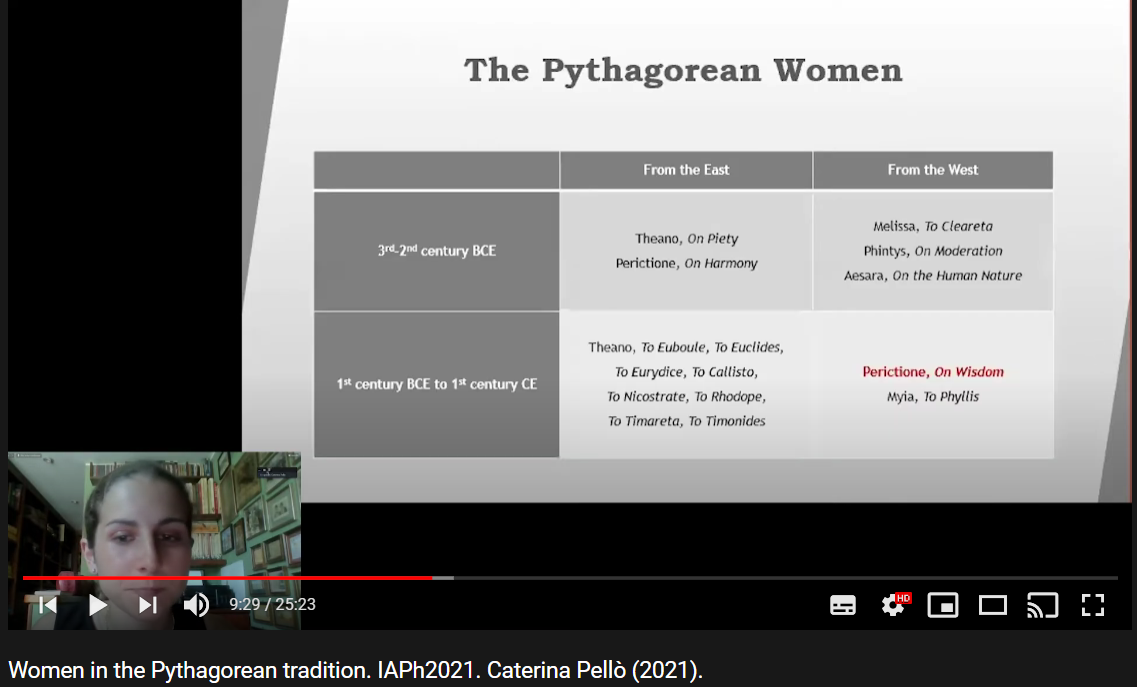 Have you seen the new Springer volume “Teaching Women Philosophers”? In her chapter, Caterina Pello explores the life and philosophy of Phintys the Spartan, a first-century BCE Pythagorean philosopher, shedding light on her ethical treatise On the Moderation of Women and her unique contributions to ancient virtue ethics.
Have you seen the new Springer volume “Teaching Women Philosophers”? In her chapter, Caterina Pello explores the life and philosophy of Phintys the Spartan, a first-century BCE Pythagorean philosopher, shedding light on her ethical treatise On the Moderation of Women and her unique contributions to ancient virtue ethics.
I first introduce the study of ancient Greek women philosophers, its problems, challenges, methodologies, questions, and answers. Next, I review the evidence for women in the Pythagorean tradition. Finally, I turn to the writings ascribed to Pythagorean women in the Hellenistic and Post-Hellenistic period. I assess Phintys’ arguments and analyse how she engages with and reacts to her philosophical predecessors, Plato and Aristotle, thus contributing original ideas to ancient virtue ethics. Phintys’ *On Moderation* revolves around two highly disputed philosophical questions: what is virtue? And which virtues are most appropriate for women? Phintys replies by combining the functionalist definition of virtue as excellence in performing one’s job with a tripartite division between proper, common, and preferable things. The argument is that, whilst some virtues, such as moderation, might be more appropriate, or preferable, for women because of their social roles, as a group virtues are common to and shared by women and men. This in turn is used as an argument to justify women’s ability to pursue philosophy. As such, Phintys rejects both the Platonic notion that sex and gender distinctions are irrelevant to one’s individual excellence, and the Aristotelian argument that men and women are virtuous in different ways. The notion of *preferable* virtue represents Phintys’ original contribution to ancient ethics.
Interested? You can find out more about Caterina’s contribution or the Springer book here.
In addition to her work on Phintys, Caterina Pello’s 2021 keynote at the International Association of Women Philosophers (IAPh) further demonstrated her expertise on ancient Pythagorean women philosophers. In this talk, Pello examined the text On Wisdom, attributed to Perictione, the mother of Plato. Unlike many Pythagorean writings associated with women, which typically focus on ethical issues, *On Wisdom* explores metaphysical and epistemological questions relevant to all of humanity. Pello challenged the traditional view that such works were authored by men using female pseudonyms, offering instead a close reading that highlighted Perictione’s contributions to ancient Greek thought on the nature of philosophy, physics, and mathematics. Through her analysis, Pello underscored how Pythagorean women philosophers extended their inquiries beyond ethics to engage with the nature of knowledge and reality itself. Watch her full talk here: 
You cannot copy content of this page








